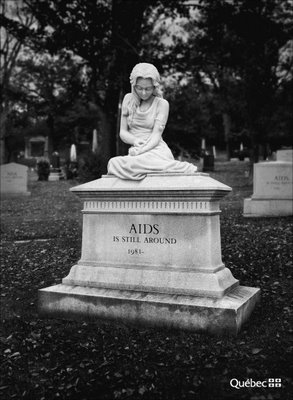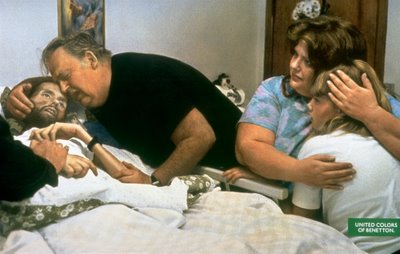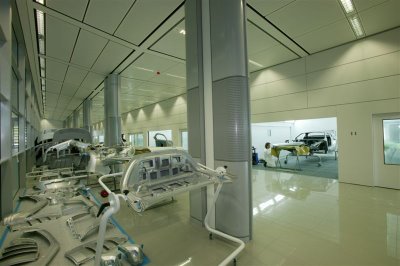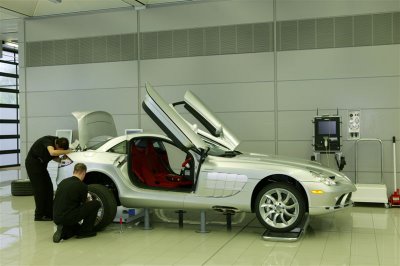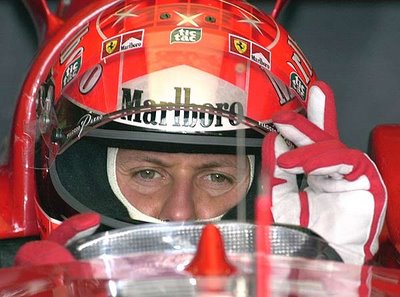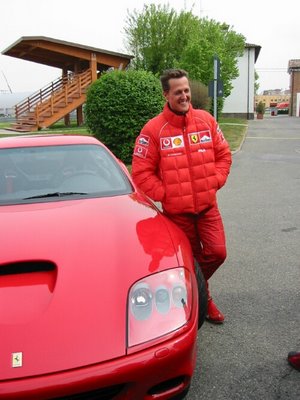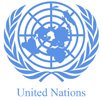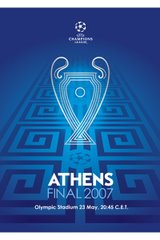2/12/06
23/11/06
We're only human? It's more complex than that
Wed Nov 22, 1:07 PM ET
PARIS (AFP)
New investigations into the code for life suggest the assumption that humans are genetically almost identical is wide of the mark, and the implications could be resounding.
Current thinking, inspired by the results five years ago from the Human Genome Project, is that the six billion humans alive today are 99.9 percent similar when it comes to genetic content and identity.
But major research work, published on Thursday, suggests we are genetically more diverse -- and the repercussions could be far-reaching for medical diagnosis, new drugs and the tale of human evolution itself.
Until now, analysis of the genome has focussed overwhelmingly on comparing flaws, or polymorphisms, in single "letters" in the chemical code for making and sustaining human life.
An international consortium of scientists has taken a different tack and believe they have uncovered a complex, higher-order variation in the code.
This better explains why some individuals are vulnerable to certain diseases and respond well to specific drugs, while counterparts swiftly fall sick or never respond to treatment, the authors believe.
Their focus has been to dig out deletions or duplications of code among relatively long sequences of individual DNA and then compare these so-called copy number variations (CNVs) across a range of volunteers of different ancestry.
The researchers were astonished to locate 1,447 CNVs in nearly 2,900 genes, or around one eighth of the human genetic code.
"Each one of us has a unique pattern of gains and losses of complete sections of DNA," said Matthew Hurles of Britain's Wellcome Trust Sanger Institute, one of the project's partners.
"One of the real surprises of these results was just how much of our DNA varies in copy number. We estimate this to be at least 12 percent of the genome."
"The copy number variation that researchers had seen before was simply the tip of the iceberg, while the bulk lay submerged, undetected. We now appreciate the immense contribution of this phenomenon to genetic differences between individuals."
Some of the missing or duplicated stretches are very long, suggesting that, like backroom switches in a protein factory, CNVs must have a big impact on gene expression.
Nearly 16 percent of genes that are known to be related to disease have CNVs, the group found.
These include genes involved in rare genetic disorders such as DiGeorge, Williams-Beuren and Prader-Willi syndromes and those linked with schizophrenia, cataracts, spinal muscular atrophy and atherosclerosis.
But kidney disease, Parkinson's, Alzheimer's and vulnerability to malaria and the human immunodeficiency virus (HIV), which recent research has blamed on single-letter variations in the gene code, may also well be rooted in CNVs, the doctors believe.
"The stage is set for global studies to explore anew... the clinical significance of human variation," said Huntington Willard and Kevin Shianna of the Institute for Genome and Science Policy at Duke University in North Carolina, in a review of the research.
Evolution is another area that will come under new scrutiny.
The "Out of Africa" scenario, by which Homo sapiens emerged from east Africa and spread around the globe, will not be challenged, though.
Our origins are so recent that the vast majority of CNVs, around 89 percent, was found to be shared among the 269 people who volunteered blood as samples for the study.
These individuals included Japanese from Tokyo, Han Chinese from Beijing, Yoruba from Nigeria and Americans of Northern and Western European ancestry.
All the same, there are widespread differences in CNVs according to the three geographical origins of the samples.
This implies that, over the last 200,000 years or so, subtle variants have arisen in the genome to allow different populations of humans adapt to their different environments, Wellcome Trust Sanger said in a press release.
The research, which appears in the British journal Nature, is based on two technical breakthroughs, one in faster, accurate sequencing of DNA and the other in a powerful software programme to spot the CNVs.

(Brexians lair)
by
brexians
στις
00:32
0
of you said:
![]()
7/11/06
(Brexians lair)
by
brexians
στις
23:38
0
of you said:
![]()
Ετικέτες ΕΛΛΗΝΙΚΑ, AVIATION-SPACE, PEOPLE
οι ουρανοι ειναι δικοι σας
(Brexians lair)
by
brexians
στις
23:24
0
of you said:
![]()
Ετικέτες ΕΛΛΗΝΙΚΑ, AVIATION-SPACE, HISTORY, PEOPLE
γιορταζει η αεροπορια μας
(Brexians lair)
by
brexians
στις
23:13
0
of you said:
![]()
Ετικέτες ΕΛΛΗΝΙΚΑ, AVIATION-SPACE, HISTORY, PEOPLE
28/10/06
Φερνάντο Μποτέρο
Απέρριψαν τον Μποτέρο ...λόγω Άμπου Γκράιμπ
25/10/2006
Συντάκτης: Αθηνά Σαλούστρου
Πηγή: ΑΠΕ
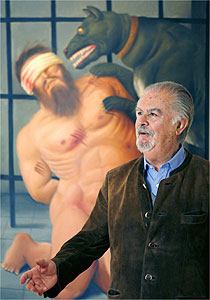
Οι πίνακες ζωγραφικής και τα γλυπτά του Κολομβιανού καλλιτέχνη κοσμούν μουσεία και δημόσιους εκθεσιακούς χώρους σε όλο τον κόσμο. Όμως ο πασίγνωστος καλλιτέχνης αντιμετώπισε σχεδόν καθολική απόρριψη όταν επιχείρησε να πραγματοποιήσει μια έκθεση στην Αμερική. Ο λόγος; Το θέμα της έκθεσης ήταν η φυλακή του Άμπου Γκράιμπ. Η σειρά πινάκων ζωγραφικής που απεικονίζουν τα βασανιστήρια Ιρακινών στην φυλακή του Άμπου Γκράιμπ από στρατιώτες των ΗΠΑ απορρίφθηκαν από όλα τα αμερικανικά μουσεία στα οποία προτάθηκε να εκτεθούν, πριν συμφωνήσει να τα δεχθεί η Γκαλερί Μάρλμπορο στο κεντρικό Μανχάταν, όπου παρουσιάσθηκαν για πρώτη φορά την περασμένη εβδομάδα και θα παραμείνουν έως την 18η Νοεμβρίου.
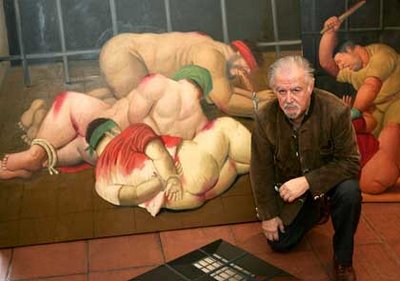
"Εδώ υπάρχει απόλυτη ελευθερία έκφρασης. Γι’ αυτό ήταν τόσο ανησυχητικό το ότι τα μουσεία δεν ήθελαν να εκθέσουν αυτά τα έργα", είπε ο Μποτέρο. Οι πίνακες, σχολίασε ο 74χρονος ζωγράφος, είναι εμπνευσμένοι από κείμενα που περιέγραφαν τα γεγονότα και δεν αποτελούν απομίμηση των διαβόητων φωτογραφιών των βασανιστηρίων. "Δεν αποκάλυπτα τίποτε που δεν ήταν ήδη γνωστό. Απογοητεύτηκα που το καλλιτεχνικό αυτό όραμα δεν μπορούσε να εκτεθεί", δήλωσε. "Μου είπαν ότι δέχθηκαν πολλές οργισμένες τηλεφωνικές κλήσεις στην γκαλερί", λέει ο Μποτέρο. Προσθέτει ότι δεν νοιάστηκε να ρωτήσει γιατί οι προτάσεις του προς τα μουσεία να εκθέσει τους συγκεκριμένους πίνακες απορρίπτονταν. Ο κριτικός τέχνης Ντέιβιντ Ντ’ Αρσί εκτιμά ότι τα μουσεία αποφεύγουν να προκαλούν την Κυβέρνηση.

"Αν επρόκειτο για άλλα έργα του Μποτέρο, θα τα δέχονταν αμέσως. Είναι ίσως ο πιο αναγνωρίσιμος σύγχρονος καλλιτέχνης", εξηγεί ο Ντ’ Άρσί. Αλλά, προσθέτει, "το τελευταίο πράγμα που θέλουν τα μουσεία είναι να στιγματισθούν. Υπήρξε μια εποχή που τα μουσεία ήθελαν να σοκάρουν τον κόσμο.
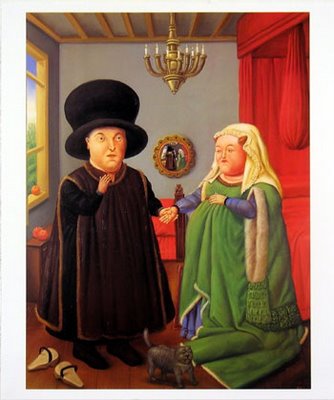
Αυτή η εποχή έχει παρέλθει". Ο Μποτέρο έχει φιλοτεχνήσει 42 πίνακες και 38 ελαιογραφίες για το θέμα. Ο ίδιος λέει ότι εργαζόταν "με μονομανία" επί 14 μήνες για να τους ολοκληρώσει. Άρχισε πέντε μήνες μετά την αποκάλυψη των γεγονότων από τον δημοσιογράφο Σέιμουρ Χερς στο περιοδικό New Yorker, τον Μάιο του 2004. Ο ζωγράφος δηλώνει ότι ελπίζει η έκθεσή του να βρει καταφύγιο σε ένα αμερικανικό ή ευρωπαϊκό μουσείο, όμως διευκρινίζει ότι δεν προτίθεται να πουλήσει τους πίνακες, παρά μόνο να τους δωρίσει. "Δεν πιστεύω στην αποκόμιση χρημάτων από την εκμετάλλευση του ανθρώπινου πόνου", εξηγεί.
(Brexians lair)
WILLIAM PYE THE WATER SCULPTOR
(Brexians lair)
by
brexians
στις
02:18
0
of you said:
![]()
Ετικέτες ART, ENGLISH, PEOPLE, SCIENCE, WEIRD NEWS
26/10/06
24/10/06
All applauds Schumacher's die-hard finale
Although most Germans are fans of the seven-times world champion and proudly wear his red Ferrari colors, there have been a fair number of detractors in a home country that has ties to several other Formula One teams.
Until Sunday, that is, when the 37-year-old Schumacher's riveting ride through the field from last to fourth at the Brazilian Grand Prix turned the final naysayers into believers, newspapers said.
"Schumi said goodbye with the most thrilling catch-up race of his career," wrote Bild newspaper, which devoted three full pages to Schumacher on Monday after 12 on Sunday.
"He fought his way back from last place to fourth with one of the best races in his 16-year career," the daily wrote.
The General-Anzeiger in Bonn, near Schumacher's hometown of Kerpen, said his fighting spirit made believers out of his enemies and brought tears to the eyes of his legions of fans.
"Even those who have absolutely no interest in motor sport could not help being captivated by his final run," it said of the race watched by 12 million Germans.
"The hopes for an eighth title were minimal but despite technical problems and a punctured tire, the champion raced like a young rookie full of cheek and fury -- chapeau Schumi!"
SCHUMACHER MAGIC
The Rheinische Post, published in Duesseldorf, called it "Schumacher magic, one last time."
"Even if he didn't make it to the podium, Schumacher showed one of the best races ever. He squeezed everything out of his Ferrari engine as if he were squeezing on a lemon, had one 'all or nothing' lap after another, and passed rival after rival."
The Berliner Zeitung said he had deserved a more glamorous farewell with a spot on the podium if not his 92nd career victory.
But it added his inspired rally stole the show, especially in passing Giancarlo Fisichella and Kimi Raikkonen.
"He drove a fabulous race in his final outing and didn't even make it to the podium," it wrote.
"With audacious, reckless and truly championship maneuvers, he even passed Fisichella and his Ferrari successor Raikkonnen to grab fourth place."
Chancellor Angela Merkel paid tribute in an open letter to Bild newspaper, putting him in a line of German sporting heroes with Max Schmeling, Franz Beckenbauer and Steffi Graf.
"You used your talent and your German virtues -- hard-work and a tireless will to succeed --- to get to the top," Merkel wrote. "And even for those outsiders who don't well understand Formula One, you enriched the sport with your brilliance."
(Brexians lair)
14/10/06
LET'S SEE...
UNITED NATIONS APPOINTS REPUBLIC OF KOREA’S BAN KI-MOON AS NEXT SECRETARY-GENERAL;
BAN, DEEPLY TOUCHED AND INSPIRED, VOWS TO ‘BUILD BRIDGES, BRIDGE DIVIDES’
Acting on the Security Council’s recommendation, the Assembly adopted a resolution formally appointing Mr. Ban to a five-year term. Diplomats and United Nations staff in the packed chamber cheered the decision. Mr. Ban becomes the eighth Secretary-General in the United Nations’ 60-year history, and will oversee an Organization with nearly 100,000 peacekeepers in 18 countries around the world, and a $5 billion annual budget.
Mr. Ban will succeed 2001 Nobel Peace Prize winner Kofi Annan, of Ghana, who will retire at the end of December, after leading the 192-member world body for a decade. Earlier in his 40-year diplomatic career, Mr. Ban, 62, served in his country’s Mission to the United Nations and, in 2001, was Chef de Cabinet to then-Assembly President Han Seung-soo, of the Republic of Korea. Mr. Ban will be the first Asian to lead the Organization since U Thant, who held the post from 1961 to 1971.
“I stand before you deeply touched and inspired,” Mr. Ban told the Assembly. As Secretary-General, he vowed to work “diligently to materialize our responsibility to protect the most vulnerable members of humanity, and for the peaceful resolution of threats to international security”. He added that: “The true measure of the success of the UN is not how much we promise, but how much we deliver for those who need us most… We need not shout [the Organization’s] praises or preach its virtues. We simply need to live them every day: step by step, programme by programme, mandate by mandate,” he said.
Pledging to carry out reforms, building on Mr. Annan’s legacy, the Secretary-General-designate said: “My tenure will be marked by ceaseless efforts to build bridges and close divides.” He declared that his leadership would be one of harmony, foreswearing division.
“Let us remember that reform is not to please others, but because we value what this Organization stands for,” he said, laying out his vision of a truly reformed United Nations that could effectively meet the challenges of the twenty-first century. “We need reform because we believe in the future. To revitalize our common endeavour is to renew our faith not only in the UN’s programmes and purposes but also in each other. We should demand more of ourselves, as well as of our organization,” he said.
Mr. Annan praised Ban as “a future Secretary-General who is exceptionally attuned to the sensitivities of countries and constituencies in every continent -- a man with a truly global mind at the helm of the world’s only universal organization”.
He recalled that, more than 50 years ago, the first Secretary-General, Trygve Lie, had used the following words in greeting his successor, Dag Hammarskjöld: “You are about to take over the most impossible job on Earth.” Mr. Annan said that, while that might be true, he would have to add: “This is also the best possible job on Earth.”
Welcoming Mr. Ban, General Assembly President Sheikha Haya Al Khalifa of Bahrain said his appointment came at a time when the United Nations was deeply engaged in a wide-ranging reform process. “We are grateful to Secretary-General Kofi Annan, who has played a major role in shaping a clear and comprehensive vision to address the many global challenges confronting us,” she declared. She was confident that the Organization would build upon its past achievements and move ahead to become an even more effective body under Mr. Ban’s leadership.
Kenzo Oshima of Japan, whose delegation holds the Security Council’s rotating Presidency for the month, presented the work undertaken by that 15-nation body leading to Mr. Ban’s appointment by the Assembly. The chairpersons of the United Nations five regional groups, and representatives of the European Union and the “Group of 77” developing countries and China, as well as of the host country, each took the podium, praising the Secretary-General-designate for his diplomatic skills and personal qualities. They said the world body would be in able hands, as it faced the challenges to come. The speakers also paid tribute to Mr. Annan for his work in steering the United Nations through 10 difficult years.
Outgoing United Nations Secretary-General, KOFI ANNAN, congratulated his successor and said he was pleased his election had been “early and orderly”. He believed everyone recognized the depth of Mr. Ban’s experience, the breadth of his connections, and his ability to operate effectively at the highest levels.
“But as someone who has known and worked with you several years, I think they will soon discover something more, if they do not see that already: a future Secretary-General who is exceptionally attuned to the sensitivities of countries and constituencies in every continent. A man with a truly global mind at the helm of the world’s most universal Organization,” Mr. Annan said.
Mr. Ban’s early election will give the United Nations community a head start in ensuring the smoothest possible transition, said Mr. Annan, giving the new United Nations chief one piece of advice: “Try to make full use of the unparalleled resource you will find in the staff of the Organization. Their commitment is the United Nations’ greatest asset, and has been the surest source of strength for me in my work as Secretary-General.”
He said that, more that 50 years ago, the first Secretary-General of the United Nations, Trygve Lie, greeted his successor, Dag Hammarskjold, by saying: “you are about to take over the most impossible job on Earth.” And, while that might be true, Mr. Annan said he would now add “this is also the best possible job on Earth”.
“As you ready yourself to take over, I wish you strength and courage. You will need those attributes, but equally, you will need a healthy sense of humour -– which I know you posses in abundance, so don’t forget to have fun along the way,” said Mr. Annan, in closing.
BAN KI-MOON, United Nations Secretary-General-designate, said he stood before the Assembly “deeply touched and inspired”. He followed a line of remarkable leaders, each of whom had faced this moment at a critical juncture in the Organization’s history. In particular, outgoing Secretary-General Kofi Annan, who had astutely guided the United Nations into the twenty-first century. “You have defined an ambitious agenda that has made the United Nations truly indispensable to peace, prosperity and human dignity around the world. Our debt to your courage and vision is immeasurable. I resolve to build on your legacy,” he told Mr. Annan.
He said that his own rapid election by the Assembly had provided him with an unprecedented opportunity: never in the history of the Organization had an incoming Secretary-General been given sufficient time to prepare for the job. He would use the next two months to consult widely on how to proceed with the Organization’s common agenda of reform and revitalization. “I will listen attentively to your concerns, expectations and ambitions,” he said. Proud to be the second Asian to lead the Organization -- following U Thant -- he said his dynamic and diverse region aspired to take greater responsibilities in the world.
He was from a part of the world where modesty was a virtue, but that was about demeanour, not vision and goals, he explained. The Asian region also exemplified “quiet determination in action to get things done without so much fanfare,” adding that that “might be the key to Asia’s success, and to the United Nations’ future.” He said: “We should be modest in our words, but not in our performance. The true measure of the success of the UN is not how much we promise, but how much we deliver for those who need us most…We need not shout [the Organization’s] praises or preach its virtues. We simply need to live them every day: step by step, programme by programme, mandate by mandate.”
The United Nations was needed now more than ever, Mr. Ban said. In the previous century, the Organization’s core mission was to keep countries from fighting each other; in the new century, the United Nations’ defining mandate was to strengthen the inter-State system, so that humanity might be better served amid new challenges.
“From the Balkans to Africa, from Asia to the Middle East, we have witnessed the weakening, or absence, of effective governance, leading to the ravaging of human rights and the abandonment of longstanding humanitarian principles,” he said, stressing that the international community needed “competent and responsible States” to meet the needs of the people for whom the United Nations was committed. “And the world’s people will not be fully served unless peace, development and human rights -- the three pillars of the United Nations -- are advanced together with equal vigour,” he added.
He said that “the road we must pave toward a world of peace, prosperity and dignity for all has many pitfalls”. As Secretary-General, he would make the most of the authority vested in his Office by the Charter and the mandate given to him by the member States. He would work with dignity to make real the responsibility to protect the most vulnerable members of humanity and for the peaceful resolution of threats to international peace and security.
Turning to Organizational reform, he said that the thorough-going exercise had taxed the attention and energies of both delegations, and the Secretariat. “But, we must stay the course,” he said, calling on the United Nations family to muster the human, institutional and intellectual resources required for the task, and organize them properly.
“We should do our part in meeting the Millennium Development Goals, expanding peace operations, threats posed by terrorism, proliferation of weapons of mass destruction, HIV/AIDS and other pandemics, environmental degradation and the imperatives of human rights,” he said.
At the same time, he went on, the United Nations was not reforming to please others. “We reform because we value what the Organization stands for. We reform because we believe in its future.” He urged the member States to demand more of each other, and of the Organization. To cut through the “fog of mistrust,” however, was going to take more intensive dialogue. “We cannot choose everything at once, but if we choose wisely, and work together transparently, flexibly and honestly, progress in a few areas would lead to progress in many more,” he promised.
He pledged to build bridges, in order to bridge gaps, to foreswear divisions, and to remain faithful to his constituency. He would also take full responsibility for Secretariat management.
He was proud to join the ranks of the world’s premier Secretariat, and pledged his utmost support, dedication and solidarity to the able and courageous men and women who served the Organization, he said. The aim of Secretariat reform was not to penalize, but to reward, so that talent and skill, experience and dedication might be fully mobilized and utilized. Calling for the Secretariat’s unsparing support as he took up the helm of the Organization, he pledged to seek excellence with humility, and to lead by example. Promises should be kept, and he pledged to work with all stakeholders for a United Nations that delivered on its promises.
“I earnestly hope that the young boys and girls of today will grow up knowing that the United Nations is working hard to build a better future for them. As Secretary-General, I will embrace their hopes and hear their appeals. I am an optimist, and I am full of hope about the future of our global Organization. Let us work together for a United Nations that can deliver more and better,” he said.

Copyright © Demetrios the Traveler
(Brexians lair)


